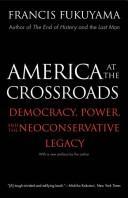
America at the Crossroads: Democracy, Power, and the Neoconservative Legacy
by
Francis Fukuyama
Published 20 Mar 2007
Skepticism about international law and the fight with the Europeans over Iraq has meant that neoconservatives have had virtually nothing innovative or interesting to say about new possi- The Neoconseiuative Legacy bilities for multilateral organization. They would much rather harp on the United Nation's failings in the Oil for Food scandal than think about how to create an organization of democracies that would build incentives to improve governance and democracy around the world. In the period immediately after World War II, American power was used not just to deter Soviet aggression but also to create a welter of new international organizations and agreements, from the Bretton Woods institutions (the World Bank and the International Monetary Fund) to the United Nations, NATO, the U.S.
…
It was the American presence that Osama bin Laden seemed to mind to a much greater extent than support for Israel or other Arab regimes. Iraq and its sympathizers around the Arab world had been Threat, Risk, and Preventive War very successful before the war in arguing that the U.N. sanctions were responsible for killing Iraqi children and had to be lifted for moral reasons. After the war the Oil for Food scandal revealed that Saddam Hussein and his international partners were, in fact, responsible for diverting to themselves money intended to help Iraqi children, but before the war it was impossible to convince anyone of this. It appeared to the administration inevitable that the sanctions regime would fall apart over the coming years and eliminate any remaining barriers to Iraq's WMD programs.
…
See also democratic transitions NATO (North Atlantic Treaty Organization), 52, 64, 99, 176; and Iraq war, 174; legitimacy of, 172-74; as security organization, 172; U.S. relationship with, 173-74 natural right, 23 neoclassical economics, 44, 199^6 neoconservatism: as approach to U.S. foreign policy, 7-8, 46-47; attacks on, 13, 183; and communism, 50-51; and the Kristol-Kagan agenda, 40-44; roots of, 14-21; Strauss as influence on, 13, 21-31; and traditional conservatism, 38-39, 44-45; underlying principles of, 4-5, 9, 13-14, 48-49; Wohlstetter as influence on, 31-36 neoconservatives: and Bush administration foreign policy, 3-4, 12-14, 61-65; debate among, regarding foreign policy, 39-40; during the Cold War, 59-60, 62-63; an< ^ international institutions, 49, 64-65; and preventive-war doctrine, 102-3; threat as perceived by, 62 New Left, 18 Nicaragua, 135 Nietzsche, Friedrich, 24 Nitze, Paul, 38, 50 Niyazov, Saparmurat, 130 nonbinding agreements, 165 Nonproliferation Treaty (NPT), 32 North, Douglass, 122, 129-30 North Atlantic Treaty Organization. SeeNKTO North Korea, 80, 91, 174-75 Norton, Anne, 21 nuclear deterrence, 32-33,68 nuclear proliferation, 32-33; in the Middle East, 34,80-81 Nye, Joseph, 149 Office of Democracy, Human Rights, and Labor (DRL), 150 Oil for Food scandal, 65, 80, 96 Olsen, Mancur, 99-100 Open Society Institute, 137 Orange Revolution, 136 Organisation for Economic Co-operation and Development (OECD), 142-43 Organization for Security and Cooperation in Europe (OSCE), 175, 176 Osirak reactor, 85, 90 Otpor, 137 overseas development assistance (ODA), 142-43, 147 Pakistan, 91; economic development in, 119; as nuclear power, 80, 88 223 Palestine: as issue in the Arab world, 76-77 Parsons, Talcott, 126 Patriot Act, 1 Perle, Richard, 12, 31, 51 Personal Responsibility and Work Opportunity Reconciliation Act (1996), 20 Philippines, 132, 135 Pillar, Paul, 68 Pinochet, Augusto, 135 Plato, 25, 30 Podhoretz, Norman, 14, 17 Poland, 29, 136 political development, 125-31, 140, 185; and competition, 129-30; and democratic transitions, 127-28, 140; and economic development, 128-29; ideas as basis for, 130 Pollack, Kenneth, 89 Popper, Karl, 24 Portugal, 133-34 Postel,Jon, 214ml poverty: Moynihan's views on, 20.
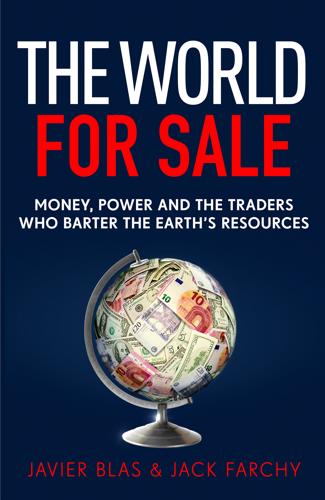
The World for Sale: Money, Power and the Traders Who Barter the Earth’s Resources
by
Javier Blas
and
Jack Farchy
Published 25 Feb 2021
Trafigura pled guilty to a charge of falsely claiming that oil it was selling in the US was compliant with the oil-for-food programme. 15 The American traders faced the harshest penalties. Oscar Wyatt, the owner of Coastal Petroleum, was sentenced to one year in jail, while his friend David Chalmers, the owner of Bayoil, was sentenced to two years. 16 The oil-for-food scandal was emblematic of the commodity industry’s new era of scarcity. For the next decade, low prices would be a distant memory, and commodity traders would fall over one another to secure the precious raw materials necessary to feed China and other emerging markets’ seemingly bottomless appetites for commodities.
…
They went to new oil nations, such as Chad and Sudan, which were exporting crude for the first time, and to established producers about to pump more, such as Russia, Azerbaijan, Kazakhstan, Yemen, Brazil, Equatorial Guinea and Angola. It was a process that drew the traders even closer into the world of oligarchs, despots and dictators, who were getting rich on the commodity boom. They forged alliances, and sometimes joint ventures, with powerful local individuals. Some traders broke the law, as the oil-for-food scandal demonstrated. Others navigated all kinds of dicey situations: wars, coups d’état, corrupt governments and chaotic nations. All in the quest to secure natural resources. ‘The trickier the country, the more upside there is,’ explains Bob Finch, the former Vitol executive who was one of the company’s leading figures during the 2000s. 22 Anyone who had access to commodities was suddenly in a privileged position thanks to the Chinese demand boom.
…
The unexpected capture of Kirkuk’s oil riches gave the Kurds a chance to build an economically autonomous country. A motley array of fixers and consultants soon appeared to help guide them. For oil, they hired a man who knew how to get it into the market: Murtaza Lakhani, the very same fixer who had been Glencore’s man in Iraq a decade earlier and had played a role in the oil-for-food scandal. Now working as an independent consultant, Lakhani helped the Kurds connect with the commodity traders. 9 Among the other fixers who cropped up in Kurdistan was Paul Manafort, the former campaign chairman for Donald Trump, who would later be jailed for financial fraud. In Iraqi Kurdistan, Manafort’s role was to help organise an independence referendum. 10 But to convert their new oil into money, the Kurds needed to find a way to sell it.
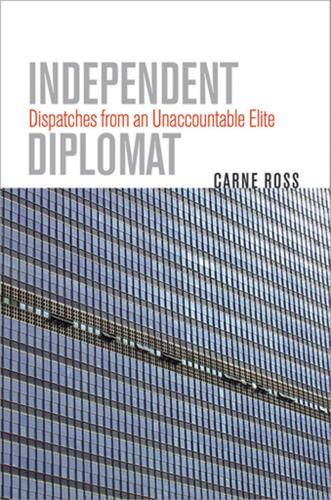
Independent Diplomat: Dispatches From an Unaccountable Elite
by
Carne Ross
Published 25 Apr 2007
I have chosen not to use the term “elected” since it is inaccurate when most of the ten temporary members are not elected in contested elections, but are given seats by rote according to their regional group and place in the alphabet. Only two of the five countries elected every year win their seats through competitive elections of the UN membership, which are themselves often stitched up through backroom deals between countries. 2 You will not find in this chapter a discussion of the Oil-for-Food “scandal” that has erupted in recent years. On this I have nothing to add to the excellent Volcker report (to which I testified at length). 3 This term, now familiar to many, comprises non-conventional weapons including chemical, biological and nuclear ones. In Iraq’s case it also meant ballistic missiles over 150km range (the full details were set out in “the mother of all resolutions”, Security Council resolution 687, which in 1991 set out the precise terms of Iraq’s obligations). 4 I hesitate to confess that the delegates responsible for negotiating a particular issue in the Security Council are called “experts” in the unofficial yet traditional nomenclature of that organ.
…
None of these measures was ever properly or energetically pursued by either the UK or US governments, thus helping to create the situation where sanctions not only failed to force Iraqi compliance but also produced negative humanitarian consequences, a doubly bad policy. 4. War Stories 1 A version of this chapter first appeared in the Financial Times, 29 January 2005. 2 This was the official British inquiry into the use of intelligence on Iraq’s WMD headed by Lord Butler, to which I testified in the summer of 2004. 3 The Volcker Inquiry into the oil-for-food scandal found no such evidence. 5. Them and Us 1 Game metaphors have been common in theories of international relations for some time. “Domino Theory”, for example, proposed, erroneously as it turned out, the idea that if one country fell to communism, its neighbours would “tip over” into communism in an unstoppable chain reaction.
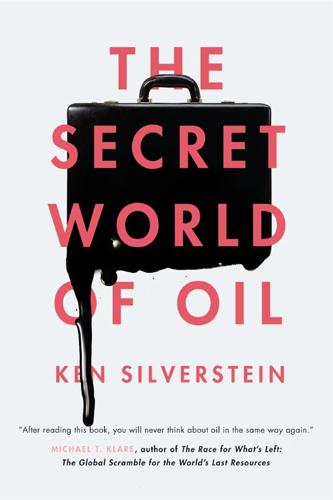
The Secret World of Oil
by
Ken Silverstein
Published 30 Apr 2014
Given the enormous size of these companies—in 2011, Glencore was valued at $60 billion, higher than Boeing or Ford Motor Co.—and the global scope of their operations, remarkably little is known about them. In recent years, major oil-trading firms were discovered to have arranged secret deals with pariah states such as Sudan and were implicated in the United Nations oil-for-food scandal during Saddam Hussein’s rule in Iraq. More recently, Amsterdam-based Trafigura, a trading firm that operates widely in West Africa, was found to have dumped four hundred tons of toxic waste in the Ivory Coast. The company paid a fine of nearly $200 million to settle charges stemming from the case, which resulted in ten deaths and tens of thousands of illnesses.
…
Key brokers who emerged in the post-1973 OPEC world included: Marc Rich, who founded the giant commodities firm Glencore (see Chapter 3); Hany Salaam, a Lebanese middleman who made numerous deals for Occidental Petroleum Corporation during the days of Armand Hammer, its former chairman; and Oscar Wyatt, a Houston oilman and corporate raider who was sentenced to a year in prison in 2007 in connection with the UN oil-for-food scandal. One of the more colorful of that era’s fixers was John Deuss, who once owned his own tanker fleet, and who during the 1980s smuggled vast quantities of oil to South Africa’s apartheid regime, then under an international trade embargo imposed by the United Nations. In 1979, after the overthrow of the shah, Iran stopped exporting oil to South Africa’s apartheid regime, due to the embargo.
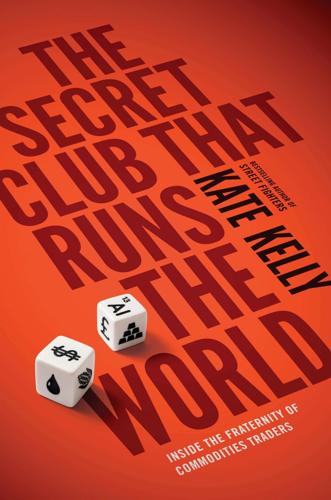
The Secret Club That Runs the World: Inside the Fraternity of Commodity Traders
by
Kate Kelly
Published 2 Jun 2014
But changes to the London Metal Exchange warehousing rules in the wake of the aluminum flap made Metro far less profitable. There was more. In Europe, Tony “Chocfinger” Ward’s cocoa corner had embarrassed the industry, and Glencore’s IPO had inadvertently invited a period of painful new scrutiny. Just a few years after the U.N. oil-for-food scandal and Trafi’s toxic-waste incident in the Ivory Coast, the physical commodity traders were again seen as mercenaries who left damage in their wake. They could shrug off the tabloid rich lists and accounts of their children partying with celebrities (the subject of an anonymous gossip item in the New York Post involving Ivan Glasenberg’s daughter), but the more substantive allegations resonated.
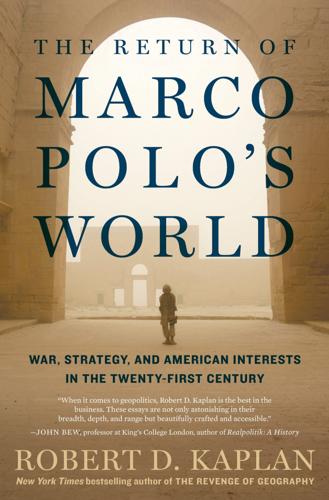
The Return of Marco Polo's World: War, Strategy, and American Interests in the Twenty-First Century
by
Robert D. Kaplan
Published 6 Mar 2018
As an early supporter of the war in Iraq, I like others have taken refuge in counterfactuals: all the bad things that might have happened had we left Saddam Hussein in power. Counterfactuals, if you haven’t noticed, have become a staple of conservative opinion pages. Indeed, the list of what-ifs is long and compelling. Just some examples: Had we not invaded, the sanctions regime against the Iraqi dictator would soon have crumbled, without the oil-for-food scandal being exposed. The French, Russians, and Chinese would have swept in with lucrative deals for Saddam, even as he restarted his weapons program. The arms race between Iraq and Iran would have grown fierce, with many, especially the Iranians, believing Saddam already possessed weapons of mass destruction.
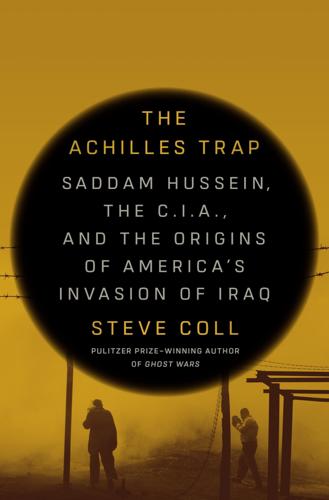
The Achilles Trap: Saddam Hussein, the C.I.A., and the Origins of America's Invasion of Iraq
by
Steve Coll
Published 27 Feb 2024
BACK TO NOTE REFERENCE 32 Interview with Allawi. BACK TO NOTE REFERENCE 33 Bashir and Sunnanå, The Insider, 193–201. BACK TO NOTE REFERENCE 34 Chapter 20: Crime and Punishment Jeffrey A. Meyer and Mark G. Califano, Good Intentions Corrupted: The Oil-for-Food Scandal and the Threat to the U.N. (New York: PublicAffairs Books, 2006), 12–15. The book draws heavily on an independent investigation of the Oil-for-Food program that was carried out by former Federal Reserve chairman Paul Volcker, who wrote an introduction. BACK TO NOTE REFERENCE 1 Robert B.
…
Marr, Phebe, with Ibrahim Al-Marashi. The Modern History of Iraq. 4th ed. Boulder, Colo.: Westview Press, 2017. Meacham, Jon. Destiny and Power: The American Odyssey of George Herbert Walker Bush. New York: Random House, 2015. Meyer, Jeffrey A., and Mark G. Califano. Good Intentions Corrupted: The Oil-for-Food Scandal and the Threat to the U.N. New York: PublicAffairs Books, 2006. Moore, Fred, comp. Iraq Speaks: Documents on the Gulf Crisis. Palo Alto: Fred Moore, 1991. Morell, Michael. The Great War of Our Time: The CIA’s Fight against Terrorism—from al Qa‘ida to ISIS. New York: Twelve, 2015. Murray, Williamson, and Kevin M.
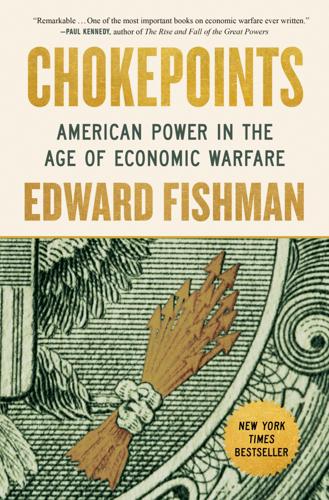
Chokepoints: American Power in the Age of Economic Warfare
by
Edward Fishman
Published 25 Feb 2025
The authors describe in detail how commodities traders viewed the Oil-for-Food program and other sanctions regimes as arbitrage opportunities. GO TO NOTE REFERENCE IN TEXT Saddam demanded kickbacks: Sharon Otterman, “Iraq: Oil for Food Scandal,” Council on Foreign Relations, October 28, 2005, www.cfr.org/backgrounder/iraq-oil-food-scandal. GO TO NOTE REFERENCE IN TEXT $11 billion from oil smuggling: Otterman, “Oil for Food Scandal.” GO TO NOTE REFERENCE IN TEXT Hunger and infant mortality: John Mueller and Karl Mueller, “Sanctions of Mass Destruction,” Foreign Affairs, May/June 1999, www.foreignaffairs.com/articles/iraq/1999-05-01/sanctions-mass-destruction; Schneller Jr., Anchor of Resolve, 65.
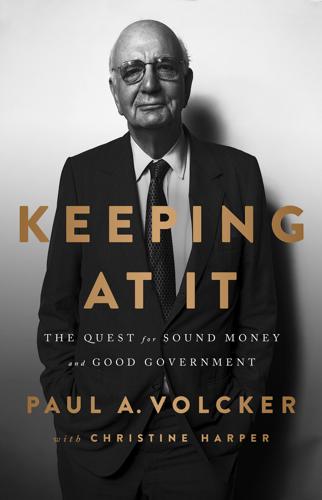
Keeping at It: The Quest for Sound Money and Good Government
by
Paul Volcker
and
Christine Harper
Published 30 Oct 2018
The committee could itself investigate: A full report by two senior staff members entitled “Good Intentions Corrupted,” with an introduction by me, tells the full story in all of its complexity. It’s worth reading for insights into the mismanagement of an international organization. Jeffrey A. Meyer and Mark G. Califano, Good Intentions Corrupted: The Oil-for-Food Scandal and the Threat to the U.N. (PublicAffairs, 2006). the “Volcker Effect”: Press Trust of India, “Volcker Effect: Natwar Singh Removed as Foreign Minister,” Times of India, November 7, 2005, https://timesofindia.indiatimes.com/india/Volcker-effect-Natwar-Singh-removed-as-Foreign-Minister/articleshow/1287392.cms.
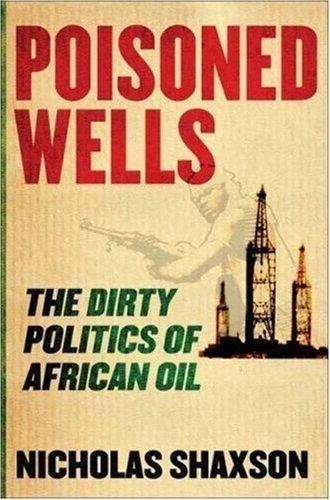
Poisoned Wells: The Dirty Politics of African Oil
by
Nicholas Shaxson
Published 20 Mar 2007
Money flowed into so many companies, he said, because buying these “obligations” from just one company all at once would move the debt markets against him; it was better to split the finances up, and act subtly from many directions. Gaydamak railed against the French investigating magistrate Philippe Courroye who is pursuing him (and leading French investigations into the Iraq oil-for-food scandal). “This Courroye is taking everybody in France by the balls,” Gaydamak said, literally coughing out the judge’s name. Noting the French word courroie, a mechanical belt, he tightened an imaginary belt around his neck and screwed his face up to make the point. “In everyday life, in everyday business, my French problem is always on my back.”
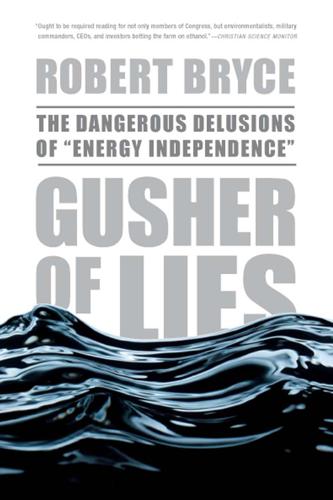
Gusher of Lies: The Dangerous Delusions of Energy Independence
by
Robert Bryce
Published 16 Mar 2011
See also under individual countries Neoconservatives and culture of fear, 263 and energy independence rhetoric, 115–121, 288 and Second Iraq War, 115–117, 121 Netanyahu, Benjamin, 120 Netherlands, 80, 250 “A New Direction for Energy Independence, National Security, and Consumer Protection” bill, 253 Nigeria, 31, 58 Nixon, Richard, 1, 10, 32, 67, 152–153, 155, 214 and Arab oil embargo, 93, 95–96 and energy independence rhetoric, 87, 104, 113, 205 and Persian Gulf, militarization of, 96 Nordhaus, William, 261 Norhaus, Ted, 228 North American Electric Reliability Council, 130 North Korea, 60 Norway, 39, 40, 74, 75 Novozymes, 176 Nuclear accidents, 203, 204, 207 Nuclear development program, in Iran, 247, 251 Nuclear power, 11, 126, 203–209, 206 fig. 15 cost of, 203–204, 205 new technology in, 273–275 Nuclear waste storage, 275 Obama, Barack, 4, 16, 20 and coal-to-liquids, 212 387 and ethanol, 157–158, 158 and oil and terror, 52 Occidental Petroleum, 31 O’Driscoll, Gerald, 119 Offshore drilling rights, 280–282 Ogawa, Kiichiro, 272 Oil control of, 26, 108, 288 discovery of, 39–40, 110 and energy density, 283 exploration of, 39–40 infrastructure, militarization of, 33 and infrastructure attacks, 21–22, 28–33 refined vs. crude, 81–82 and terrorism, conflation of, 2, 52–60, 115–121, 233, 266 See also under individual countries; Peak oil Oil addiction, 19, 239–240 Oil and War (Goralski and Freeburg), 32 Oil companies, 39, 40. See also International oil companies; National oil companies; United States, oil companies in Oil exports and energy market, 15–16 net crude, 17 See also Oil, and terrorism, conflation of; OPEC; under individual countries and under individual fuels Oil-for-food scandal, 23 Oil imports, 15 1970–1979, 94 fig. 3 in U.S., 55 See also Energy imports Oil ministry building, and Second Iraq War, 24 388 Index Oil prices, 49, 50 collapse of, 71–76, 76–79 and collapse of 1986, 79 and energy market, 33, 69–71 and import quotas, 91–92 and Texas oil cartel, 90, 91–92 trends in, 16–17 See also Fuel prices Oil reserves, 23, 48, 67, 68, 111 table 2a, 111 table 2b in Persian Gulf, 98 in Saudi Arabia, 23, 49–51 in U.S., 68 Oil revenues and corruption, 75–76 and terrorism, 56–58 Oman, 51, 97 Oman Crude Oil Futures Contract, 244 Oneal, Michael, 177 OPEC (Organization of the Petroleum Exporting Countries), 10, 49, 55, 68, 69, 110 and expansion plans, 242 fig. 19 and import quotas, 91–92 and natural gas, 113 and oil control, 108 and oil price collapse, 79 and refining capacity, 81 See also individual OPEC countries Open-source warfare, 59 Organization for Economic Cooperation and Development, 44 Organization of the Petroleum Exporting Countries.
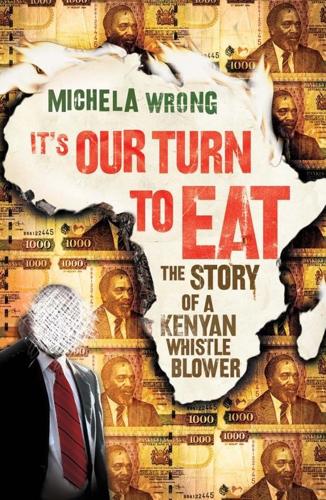
It's Our Turn to Eat
by
Michela Wrong
Published 9 Apr 2009
When the World Bank unveiled a special panel to investigate the underperforming internal investigation unit created by Wolfensohn, the Department of Institutional Integrity (INT), John was one of six independent experts recruited. The panel was headed by Paul Volcker, former chairman of the US Federal Reserve, who had also probed the UN's oil-for-food scandal. John had made the transition from domestic whistleblower to internationally recognised expert on graft, with a finger on the pulse of the global aid debate. The fight against corruption had mushroomed out of all recognition, going from an issue championed by a few activists to an industry whose meetings filled five-star hotels with per-diem-claiming suits.
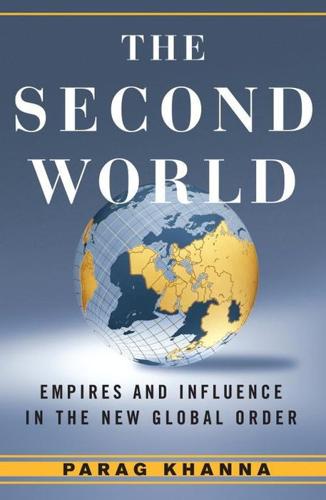
Second World: Empires and Influence in the New Global Order
by
Parag Khanna
Published 4 Mar 2008
A Jordanian businessman put it best: “We always profit from wars—so long as it’s our neighbors and not us!” West Amman was built on a mix of Gulf money after the Gulf War as well as successful Palestinians holding real estate assets just in case they would have to flee the West Bank less than sixty miles away. Hundreds of Jordanian and Syrian companies were implicated in the UN oil for food scandal by which kickbacks were paid to arrange the evasion of the sanctions on Iraq under Saddam Hussein. Foreign contractors use Amman as a staging point to service Iraqi reconstruction, utilizing Jordanian subcontractors for everything from transport to medical services. At the same time, much of Iraq’s middle class fled to Jordan to escape their own civil war.
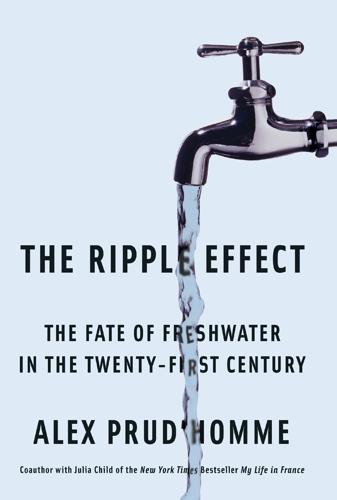
The Ripple Effect: The Fate of Fresh Water in the Twenty-First Century
by
Alex Prud'Homme
Published 6 Jun 2011
It was the largest summit in history at the time, and its purpose was to convince delegates from 178 nations to embark on “a new era of collective security” by replacing military buildups with environmental protections. At the UN, Strong worked as senior adviser to former secretary-general Kofi Annan until 2005, when Strong resigned in the aftermath of the Iraqi oil-for-food scandal. One evening in 1978, a gray-bearded shaman appeared at Hanne Strong’s door at Baca Ranch and introduced himself as Glenn Anderson. “I’ve been waiting for you,” he said. “I predicted in the sixties that a foreigner would come here and build an international religious center. What took you so long?”
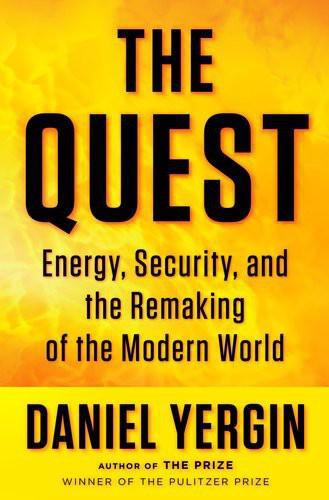
The Quest: Energy, Security, and the Remaking of the Modern World
by
Daniel Yergin
Published 14 May 2011
New York: Signet Books, 1974. Meijer, G. I. “Cooling Energy-Hungry Data Centers.” Science 328, no. 5976 (2010). Meissner, Fred. “M. King Hubbert as a Teacher.” Presentation. Geological Society of America Annual Meeting. Seattle. (2003). Meyer, Jeffrey, and Mark Califano. Good Intentions Corrupted: The Oil-for-Food Scandal and the Threat to the U.N. New York: Public Affairs, 2006. Meyer, Karl E., and Shareen Blair Brysac. Tournament of Shadows: The Great Game and the Race for Empire in Central Asia. New York: Basic Books, 1999. Mills, Rodney A. “Iran and the Strait of Hormuz: Saber Rattling or Global Energy Nightmare.”